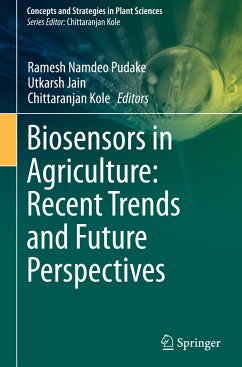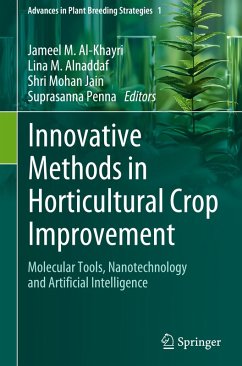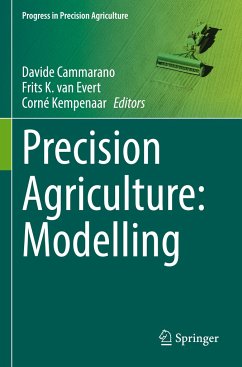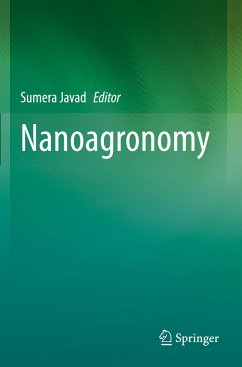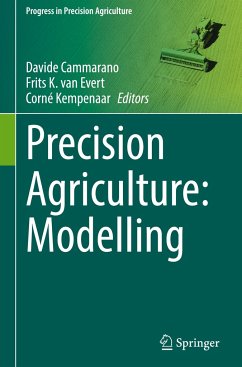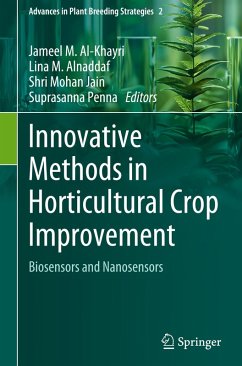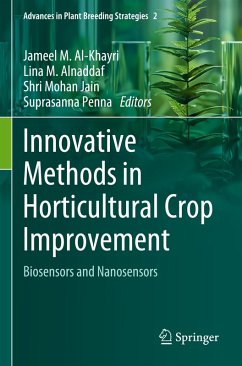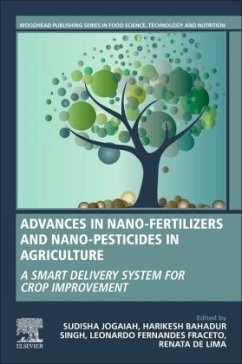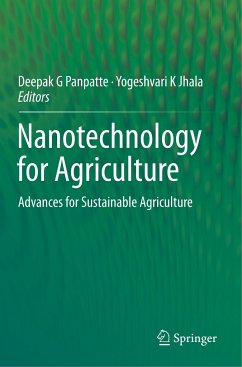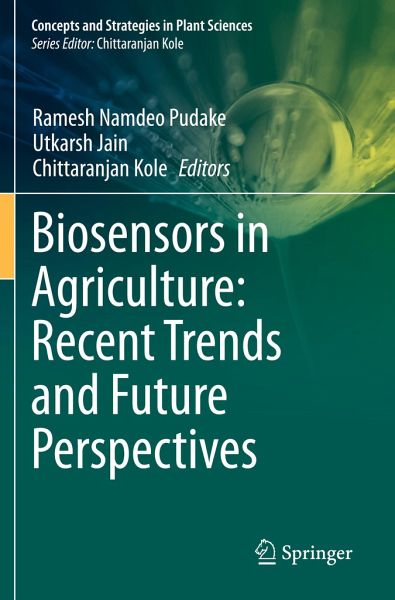
Biosensors in Agriculture: Recent Trends and Future Perspectives
Versandkostenfrei!
Versandfertig in 6-10 Tagen
213,99 €
inkl. MwSt.

PAYBACK Punkte
0 °P sammeln!
This book reviews the application of nanosensors in food and agriculture. Nanotechnology has the potential to become transformative technology that will impact almost all sectors. Tools like nanosensors, which detect specific molecular interactions, can be used for on-site, in-situ and online measurements of various parameters in clinical diagnostics, environmental and food monitoring, and quality control.Due to their unprecedented performance and sensitivity, nanobiosensors are gaining importance in precision farming. The book examines the use of nanobiosensors in the monitoring of food addit...
This book reviews the application of nanosensors in food and agriculture. Nanotechnology has the potential to become transformative technology that will impact almost all sectors. Tools like nanosensors, which detect specific molecular interactions, can be used for on-site, in-situ and online measurements of various parameters in clinical diagnostics, environmental and food monitoring, and quality control.
Due to their unprecedented performance and sensitivity, nanobiosensors are gaining importance in precision farming. The book examines the use of nanobiosensors in the monitoring of food additives, toxins and mycotoxins, microbial contamination, food allergens, nutritional constituents, pesticides, environmental parameters, plant diseases and genetically modified organisms. It also discusses the role of biosensors in increasing crop productivity in sustainable agriculture, and nanosensor-based smart delivery systems to optimize the use of natural resources such as water, nutrients and agrochemicals in precision farming.
Due to their unprecedented performance and sensitivity, nanobiosensors are gaining importance in precision farming. The book examines the use of nanobiosensors in the monitoring of food additives, toxins and mycotoxins, microbial contamination, food allergens, nutritional constituents, pesticides, environmental parameters, plant diseases and genetically modified organisms. It also discusses the role of biosensors in increasing crop productivity in sustainable agriculture, and nanosensor-based smart delivery systems to optimize the use of natural resources such as water, nutrients and agrochemicals in precision farming.





